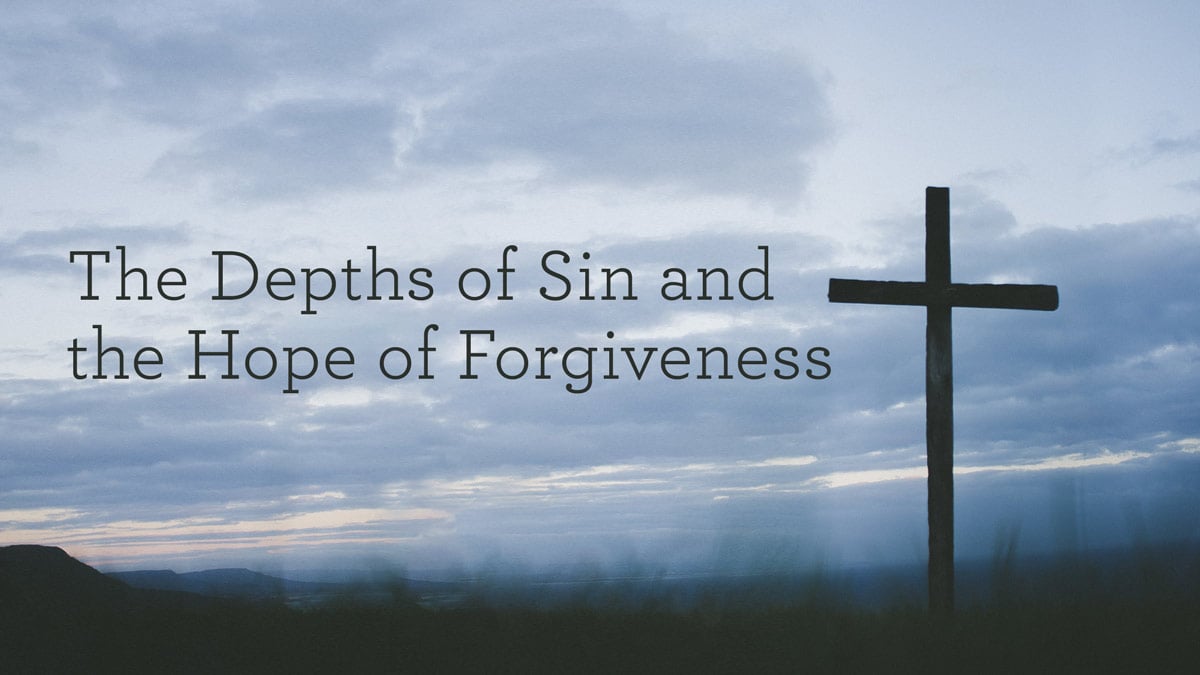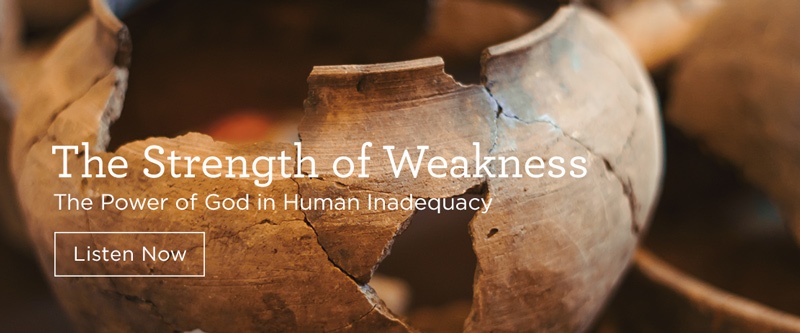
As he begins his plea to God in Psalm 130, the psalmist describes himself in a metaphorical location: “Out of the depths I cry to you, O Lord!” To the Hebrew writers and readers of the Psalms, “the depths” was a way of speaking about the sea, and the sea was a dangerous place. When they talked about the depths, they were talking about drowning.
The deepest pit we will ever find ourselves in is the pit of our own sin.
Many of us identify with this psalm because that is where we find ourselves: drowning in life’s hardships and temptations. Our world is broken, and difficulty is hardwired into it. We will all find ourselves in the depths at one time or another. It is in those times when we truly understand why the psalmist cries out,
O Lord, hear my voice!
Let your ears be attentive
to the voice of my pleas for mercy! (Ps. 130:1–2).
This is not a casual call; it’s a call of emergency. And it is a call that God answers.
The Kindness of God
While we are always in desperate need of God’s mercy, we do not often recognize it. We like to go on with our lives pretending to be self-sufficient. To shake us from our stupor, God may, in His kindness, bring us to the depths (Heb. 12:5–11). Why? Because it is in the depths that we recognize the need we have always had and cry out to our Father in heaven.
We see this happen in the life of Jonah when he runs from God. In His kindness, God seizes Jonah’s attention by literally casting him into the sea and into the belly of the great fish (Jonah 1:15, 17). And it is from the belly of that fish that Jonah turns back to God and cries out for the mercy he had always needed (Jonah 2).
The great Puritan theologian John Owen testified that God worked this way in his life. He wrote, “I had but very little, if any, experimental acquaintance with access to God through Christ; until the Lord was pleased to visit me with sore affliction, whereby I was brought to the mouth of the grave, and under which my soul was oppressed with horror and darkness.” Through this experience in the depths—and an encounter with Psalm 130—Owen received “instruction, peace, and comfort, in drawing near to God.”1
The Depths of Sin
The depths in which the psalmist finds himself are not merely those created by difficult circumstances. No, he finds himself in the depths of his own sin: “If you, O Lord, should mark iniquities, O Lord, who could stand?” (Ps. 130:3).
There are many circumstances in life that may bring us to the depths, but the deepest pit we will ever find ourselves in is the pit of our own transgressions. This pit is so deep and so dark that there is absolutely no chance we can get ourselves out of it. We cannot simply wait for the problem to pass; time will not heal this wound. The psalmist understands that his sins are utterly reprehensible and that there is no hiding them from the eternal, sovereign Lord.
God is holy, He is all knowing, and He weighs our actions. He knows the things we say in secret. He knows the covetous desires of our hearts. He knows our every impure thought. If He kept count of our sins and held them against us, we would have no hope of standing. We could enter no plea before the bar of God’s judgment apart from “guilty as charged.”
The Hope of Forgiveness
We cannot help our sinful state—but we can ask for help. Once the psalmist understood how hopeless he was on his own, he could attest that his only hope was in God, because “with [God] there is forgiveness” (Ps. 130:4). Though we are guilty in the depths of sin, God, being rich in mercy, offers the way out through forgiveness.
This divine forgiveness is magnificent because it is not a glib glossing over of sin. God does not merely shrug His shoulders in indifference and say, “It’s fine.” No, He has paid for our forgiveness with the blood of His Son (1 Cor. 6:20), and it is the greatest gift He could have given us (Eph. 2:7–8). If we are to grasp how much God cares about dealing with sin, we must stand and look at the cross of Jesus Christ. The God who is holy and just put His own Son to death in order to execute His judgment on sin and express the immensity of His love for sinners (Rom. 5:8).
If we are to grasp how much God cares about dealing with sin, we must stand and look at the cross of Jesus Christ.
This is who God is and who He has always been. He is, by His own testimony, “The Lord, the Lord, a God merciful and gracious, slow to anger, and abounding in steadfast love and faithfulness, keeping steadfast love for thousands, forgiving iniquity and transgression and sin” (Ex. 34:6–7). He is holy and just, but still He offers incomparable mercy and forgiveness.
And to whom does He offer such incredible gifts? As the old hymn puts it, “All the fitness He requireth is to feel your need of Him.”2 Do you feel your need of Him? It is this sense of need that will draw you to Christ for salvation and for sanctification. And it is this sense of need that will lead you daily to the shelter of His mercy. You will find yourself at times in depths, drowning in life’s hardships and temptations. But praise be to God! For “with him is plentiful redemption” (Ps. 130:7).
This article was adapted from the sermons “An Exposition of Psalm 130 — Part One” and “An Exposition of Psalm 130 — Part Two” by Alistair Begg.
Topics: Articles
